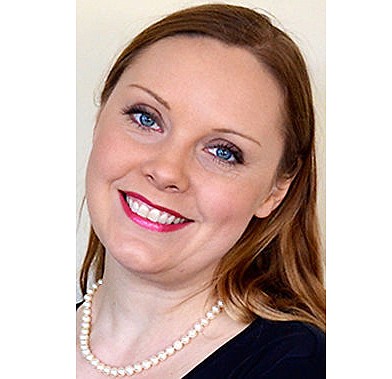With the legislative session for Missouri having officially opened at the beginning of January, District 50 Rep. Sara Walsh is working on bills that would have an effect statewide.
Walsh, who represents parts of Moniteau County, has two bills working through the legislature as the legislature nears a month in session this year. One modifies provisions related to personal property tax obligations when registering motor vehicles, trailers and boats, and the other adds provisions relating to in-home licensed childcare facilities affected by Nathan's Law.
Walsh said HB 1256 eliminates the requirement to present a Missouri property tax receipt when registering vehicles. She said in other states, the Department of Revenue isn't the "hammer" making sure people pay their taxes. Instead, there's a system where county collectors and treasurers can send information about anyone who is considered delinquent to the Department of Revenue, who then can suspend those individuals' tags.
Additionally, Walsh said law enforcement in Missouri is capable of catching tax delinquency with its own systems, meaning the current system just bogs down the process for law-abiding citizens.
"I did a ride-along with a Boone County sheriff's deputy on an unrelated issue, and their scanners in their vehicles if they're driving past someone, it beeps and tells them if the plate needs to be taken off the vehicle," Walsh said.
This means law enforcement agencies could likewise inform the Department of Revenue of any individuals who should have suspended tags, Walsh said.
In the state, it's possible to register vehicles online in all but 12 counties - Walsh said her bill would make it possible for residents in those counties to do so.
Walsh's bill aims to streamline the process and shift the focus to those who do not pay their taxes and lighten the paperwork burden on those who do.
"It's got a lot of support from just common people," Walsh said. "It's kind of a common sense bill, so I'm just trying to find ways to work out any unintended consequences."
Walsh said it's important to note this bill does not propose eliminating property taxes altogether.
Walsh's second bill, HB 1257, aims to curb some of the consequences of HB 2097 - Nathan's Law - in regards to licensing of childcare facilities. The law, which went into effect last year, specifies a child related by blood, marriage or adoption must be counted in the total number of children being cared for as it applies to determining if a facility is required to be licensed. Unlicensed in-home daycare providers were able to watch an unlimited number of relatives along with four other children before the passage of Nathan's Law, named after Nathan Blecha, a child who died from suffocation at a Jefferson County in-home daycare serving 10 children in 2007.
Originally, Walsh said, the law was just supposed to limit the number of children that could be cared for by an unlicensed provider, and Nathan's Law as it currently stands has had a negative effect on licensed providers around the state, including those in Moniteau County. This is because the law as passed repealed language allowing in-home licensed childcare facilities to qualify for the exemption for related children when calculating the number of children being cared for in the home.
"Under the previous language, licensed providers were able to exempt their own relatives and not count them against their numbers, those limits that they have," Walsh said.
Walsh said more than 100 licensed providers, including folks like Cathy Wagner in Moniteau County, have reached out or sent letters since Nathan's Law went into effect explaining how it has hurt their businesses.
"Their grandkids count in their numbers, so they have to kick out paying customers," Walsh said. "They're not going to charge their (children)."
Walsh said Nathan's Law wasn't originally touted as having an effect on licensed providers. She said licensed providers were notified at the beginning of August and only had a month to get things sorted before the law went into effect, which contributed even further to the current negative outcome.
At the present, the public hearing for HB 1256 was completed Jan. 21, and HB 1257 was read for the second time Jan. 9, with a hearing not yet on the house calendar.

